Here, There & Everywhere
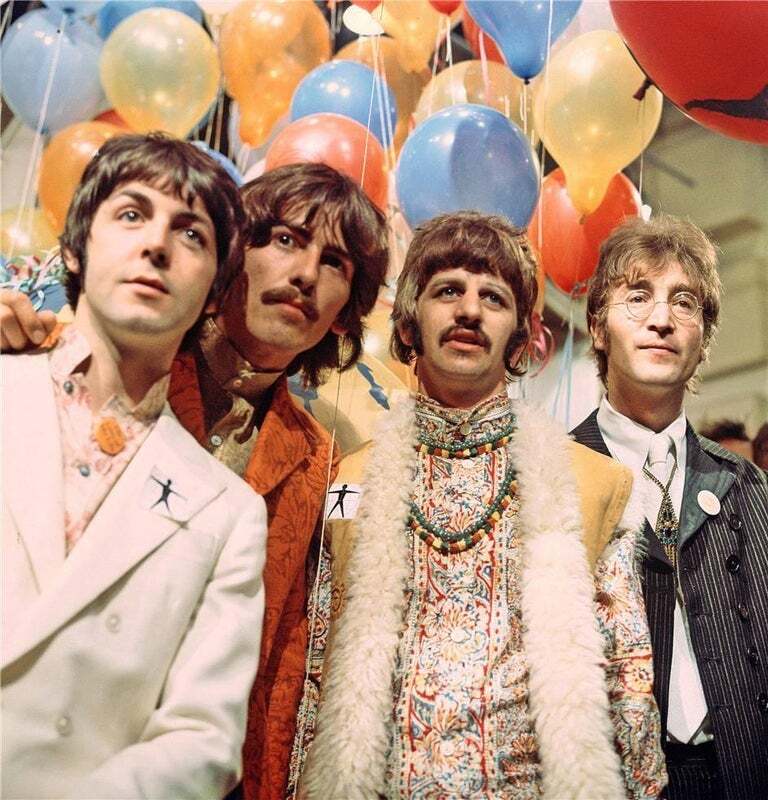
I’ve written a number of longer posts now, each exploring the history of some of the greatest bands to emerge from Britain. Few stories, however, carry as much weight or as much cultural resonance as that of The Beatles.
The history of The Beatles has been documented more thoroughly than perhaps any other band in history, and by people far more qualified than me. My aim here isn’t to retell every detail of their journey, but to highlight their importance, and more importantly, the brilliance of the songs they've left behind.
The Songs:
Between 1962 and 1970, The Beatles produced some of the most iconic songs ever written. In the span of just eight years, they released music that would alter the course of popular culture. From their debut single ‘Love Me Do’ through to their final release ‘The Long and Winding Road,’ the catalogue is overflowing with brilliance. Songs like ‘Hey Jude,’ ‘Penny Lane,’ ‘Ticket to Ride,’ ‘Help!,’ and ‘I Want to Hold Your Hand’ are not just hits; they’ve become part of the cultural fabric of Britain and the wider world, woven into everyday life and memory.
But The Beatles were never just about the singles. Their albums revealed a depth and creativity that pushed boundaries at every turn. 'Rubber Soul', 'Revolver', 'Sgt. Pepper’s Lonely Hearts Club Band', and 'Abbey Road' each marked significant shifts not only in the band’s sound, but in the very concept of what an album could be.
Tracks like ‘A Day in the Life,’ ‘Here Comes the Sun,’ and ‘A Hard Day’s Night’ all sound radically different from one another, yet each is unmistakably Beatles. They experimented with studio effects, non-Western instruments, complex harmonies, and narrative storytelling in ways no one had seen before.
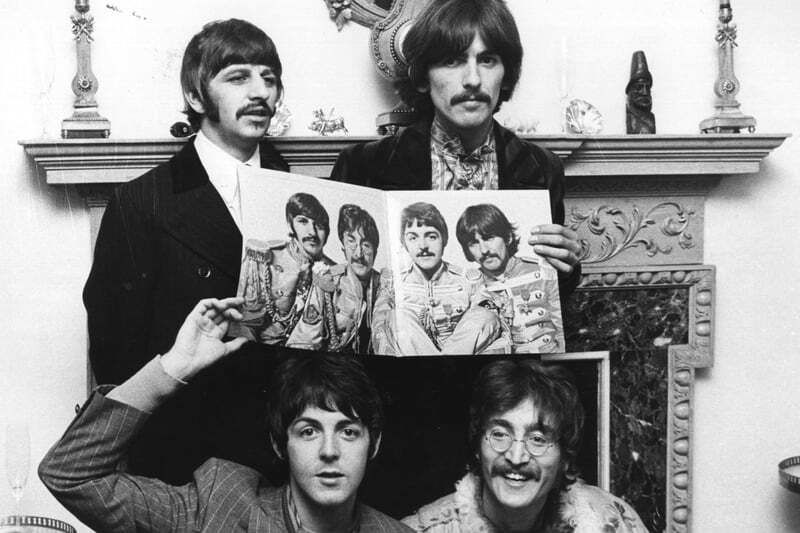
What’s truly remarkable is how these songs, now several decades old, still refuse to feel dated. They carry a timeless quality, sounding fresh and modern even in 2025.
The release of ‘Now & Then’ in 2023 underlined this enduring relevance. Marketed as the “final” Beatles song, it went straight to Number One in the UK Singles Chart, a powerful reminder that the world still hungers for their music. The fact that a band whose members first met in Liverpool over sixty years ago could still command the top spot is extraordinary.
The Beatles were four lads from Liverpool, but their legacy has grown far beyond the individuals. The songs they created, songs that have been sung, played, covered, and cherished across generations, far surpass the band itself. Long after the story of The Beatles has been told and retold, the music will remain: timeless, unifying, and alive.
The Fab Four:
The Beatles, John Lennon, Paul McCartney, George Harrison and Ringo Starr. Each brought their own personality, stories, and musical gifts to the group, creating a synergy rarely seen in music history.
All of which have there own stories, there own songs both with and without The Beatles and are extremely talented individuals in their own right.
Good songwriters come around a lot, from Dylan, to Richard’s and Jagger. Through to Stevie Nicks, David Bowie, Freddie Mercury, etc. However to have them be in the same band is extremely rare. The Beatles had three unbelievable songwriters.
Lennon and McCartney formed a songwriting powerhouse that drove most of The Beatles’ early work. Their partnership was a study in contrasts: Lennon’s sharp wit and introspective lyricism complemented McCartney’s melodic instincts and ability to craft irresistible hooks. Harrison’s contributions came later, but he would write some of the band’s most beloved songs, from ‘Taxman’ to ‘Here Comes the Sun.’ Having Harrison’s brilliance alongside Lennon and McCartney turned the band into a prolific creative engine, releasing a new album nearly every year from 1963 to 1970.
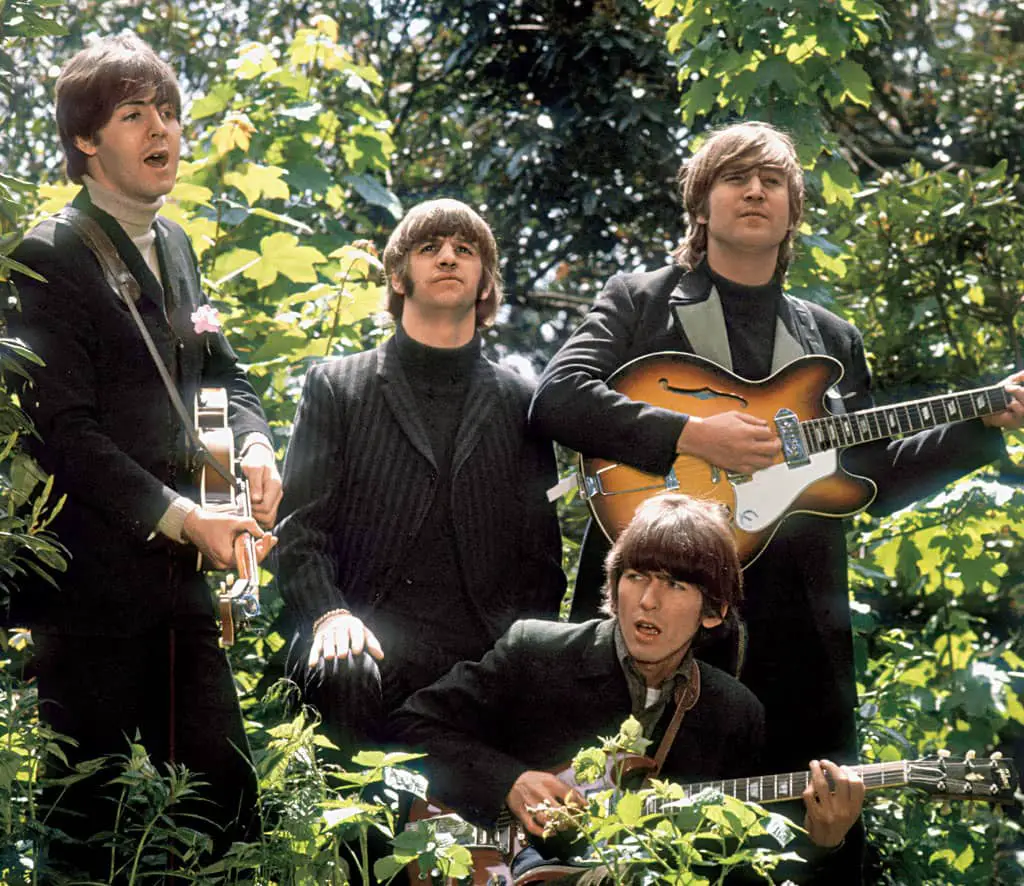
Constantly breaking boundaries and embracing new technology, The Beatles turned Abbey Road Studios into a laboratory of sound, evolving as musicians with every album. They explored new genres, from rock and roll to psychedelic rock, from Indian classical to folk, and they constantly experimented with production techniques, layering, and unconventional instruments. Their restless curiosity inspired generations of musicians to think bigger about what music could achieve.
The Influence:
The Beatles were more than just musicians, they became cultural icons. They embodied the spirit of their time, and sometimes challenged it.
John Lennon sparked controversy with his remark that the band was “bigger than Jesus,” causing uproar in the United States. Yet, the band also made bold moral stands, like refusing to play to segregated audiences. Their influence extended beyond music into fashion, film, and social attitudes, inspiring young people worldwide to question norms and embrace creativity.
George Harrison introduced the band to Indian classical music and spirituality, leading them to study under Ravi Shankar. Meanwhile, John and Paul experimented with LSD, reflecting the wider cultural shifts of the 1960s. The Beatles were the poster boys of the ‘Swinging Sixties,’ arguably the world’s first mega-stars.
Beatlemania was a global phenomenon. Fans flocked to meet the Fab Four, their music and personalities representing youth, freedom, and rebellion. Streets outside airports and concert venues would be swarmed by screaming teenagers, some fainting or even climbing lampposts for a glimpse of the band. Their appearance on The Ed Sullivan Show in 1964 drew over 73 million viewers in the United States alone, a staggering number for the time, and is often credited with officially “launching” the British Invasion.
Beyond the hysteria, The Beatles’ impact on popular culture was profound. They pioneered the modern music video with inventive promotional clips for songs like ‘Strawberry Fields Forever’ and ‘Penny Lane,’ which transformed the way artists could visually express their music. They revolutionized the album format with works like 'Sgt. Pepper’s Lonely Hearts Club Band', creating concept albums that told cohesive stories rather than just collections of singles.
The Beatles also helped define the modern idea of the “rock star” as both an artist and influencer. They set trends in fashion matching suits, mop-top haircuts, psychedelic clothing and their opinions, lifestyles, and public statements carried cultural weight. From political stances to spiritual exploration, the band inspired fans to think, question, and embrace creativity in ways that went far beyond the music itself. Their reach extended into film, art, literature, and even social attitudes, proving that pop culture could be a platform for ideas as well as entertainment.
John Lennon: The Visionary Voice
John Lennon is perhaps the most famous of The Beatles for his non-musical endeavors, becoming a symbol of the peace movement and a leading figure of the counterculture. But before he was an activist and visionary, Lennon was a revolutionary musician and songwriter whose work with The Beatles helped reshape modern music.
Within the band, Lennon was the sharp, daring edge. His songs often carried wit, irony, and raw emotion, whether it was the introspective melancholy of ‘Nowhere Man,’ the political commentary of ‘Revolution,’ or the playful surrealism of ‘Lucy in the Sky with Diamonds.’ Lennon’s songwriting pushed boundaries, blending personal introspection with social commentary and experimental musical ideas. His ability to combine catchy melodies with profound or provocative lyrics gave The Beatles much of their distinctive character and cultural resonance.
Lennon’s influence extended to the band’s experimental period in the mid-1960s, when he embraced avant-garde techniques, tape loops, and studio experimentation. His voice was central to the emotional impact of countless Beatles tracks, from the melancholy of ‘Strawberry Fields Forever’ to the fierce urgency of ‘Help!’ He also contributed to the humorous and whimsical side of the band, bringing his eccentric personality into songs like ‘Being for the Benefit of Mr. Kite!’ and helping to shape the quirky charm of albums like Sgt. Pepper’s Lonely Hearts Club Band and Magical Mystery Tour.
After The Beatles broke up, Lennon’s vision for music as a force for change became even clearer. Songs like ‘Imagine’ and ‘Happy Xmas (War Is Over)’ cemented his legacy as an artist who sought to address injustice, war, and inequality through art. These works are more than just songs, they are timeless calls for unity, empathy, and hope that continue to resonate decades later.
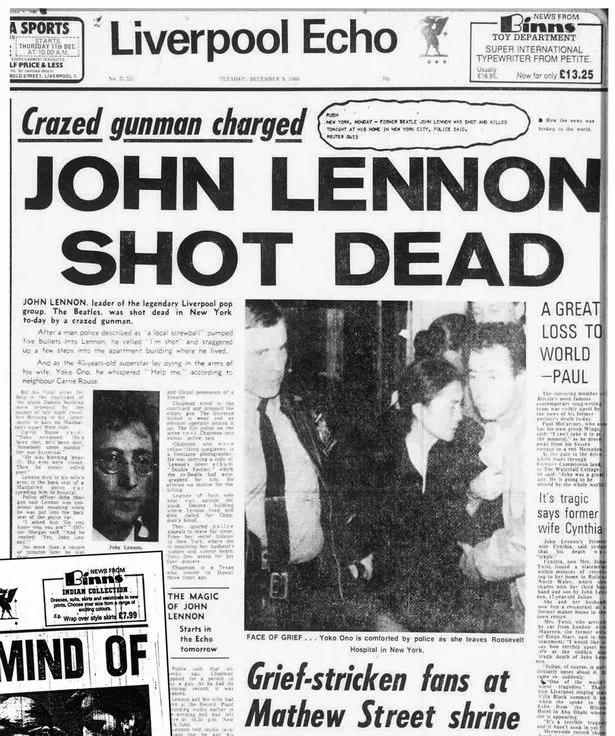
Tragically, Lennon’s life was cut short in 1980. Outside his New York home at the Dakota Building, he was shot by a fan, Mark Chapman. The death of one of the poster boys of the 1960s and arguably a member of the world’s most famous band sent shockwaves across the globe. A man whose life and music had been dedicated to advocating peace and love had been taken in one of the most violent and senseless ways imaginable.
Even decades after his passing, Lennon’s legacy remains an integral part of The Beatles’ story. His innovative songwriting, fearless creativity, and unflinching honesty helped shape the sound of a generation. He showed that music could be both deeply personal and socially powerful, and his influence continues to inspire musicians, activists, and dreamers around the world. Through his work with The Beatles and his solo career, John Lennon remains a visionary voice whose songs, ideals, and spirit are timeless.
Paul McCartney: The Melodic Maestro
Lennon may have been the visionary, but McCartney’s melodic genius cannot be overstated. A virtuoso on piano, guitar, and bass, he effortlessly traversed genres while never compromising a song’s emotional core. From the protest beauty of ‘Blackbird’ to the nostalgic charm of ‘Penny Lane,’ McCartney wrote some of the most beloved pop songs of all time. His uncanny ability to craft memorable melodies, combined with sophisticated harmonic choices, gave The Beatles a distinct sound that balanced Lennon’s edginess with warmth and accessibility.
McCartney’s versatility extended far beyond traditional pop and rock. He experimented with orchestral arrangements, as on Eleanor Rigby and Yesterday, blending classical sensibilities with contemporary music in ways that were groundbreaking for the time. He also explored psychedelic textures, as heard on Sgt. Pepper’s tracks like ‘Lovely Rita’ and ‘She’s Leaving Home,’ and pushed boundaries in experimental projects such as McCartney II, which delved into synthesizers and avant-garde soundscapes.
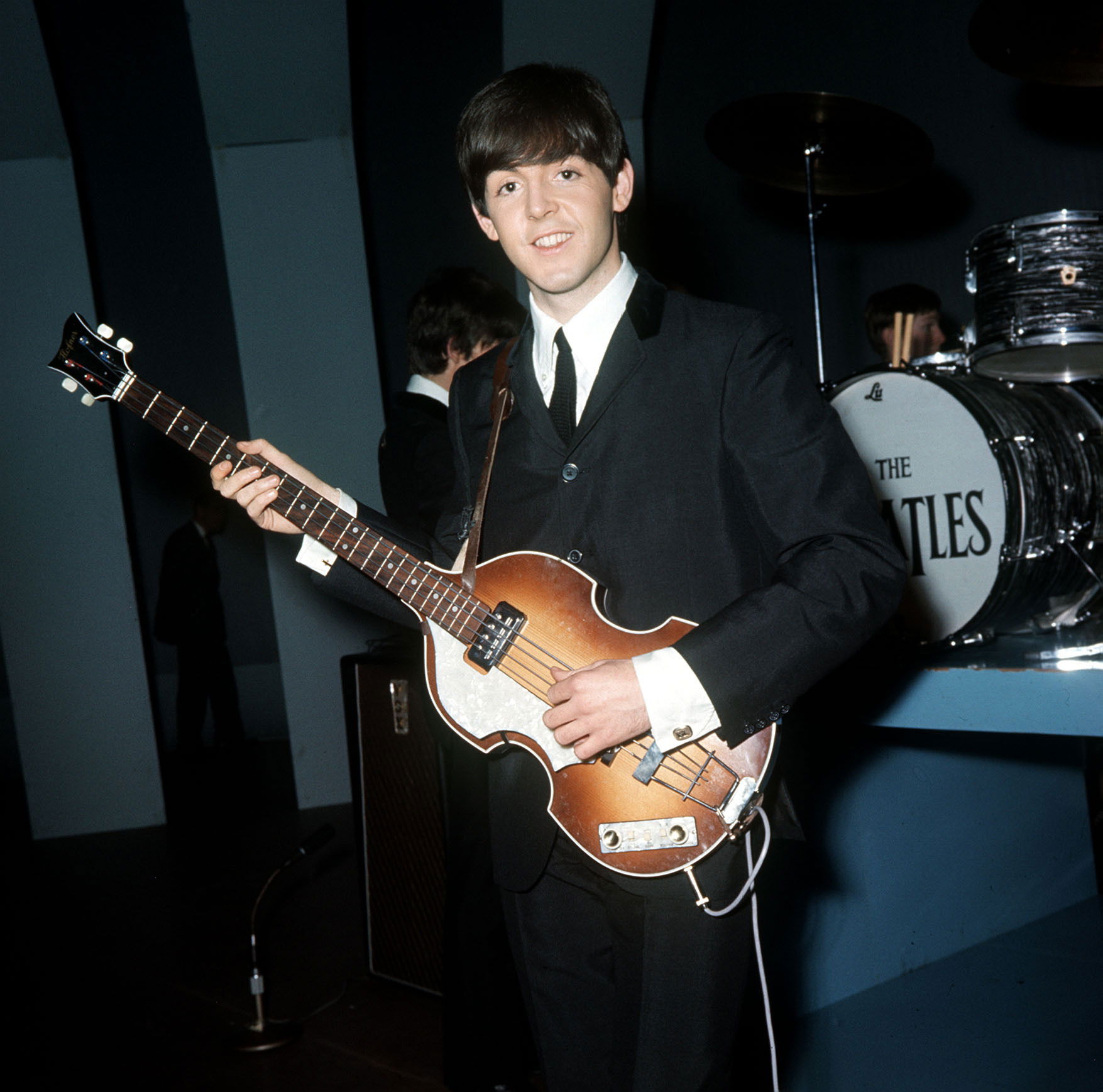
His solo career and work with Wings further cemented his reputation. Hits like ‘Band on the Run’ and ‘Live and Let Die’ showcased his knack for both catchy hooks and cinematic scope. McCartney headlined Glastonbury twice and consistently reached the top of charts worldwide, proving that his influence transcended The Beatles. Beyond pop, he also composed classical works, electronic music, and collaborative projects, including Liverpool Oratorio and the experimental Ecce Cor Meum, demonstrating a restless curiosity and lifelong commitment to musical innovation.
Even more remarkable is McCartney’s ability to evolve while remaining unmistakably himself. Whether writing tender ballads, political statements, or exuberant rockers, his work continues to resonate across generations. Few artists can claim the same balance of technical skill, emotional depth, and sheer creative breadth, a true melodic maestro whose music will endure for centuries.
George Harrison: The Quiet Innovator
You cannot understate George Harrison’s influence on The Beatles and British music in general. He was one of the finest guitarists and songwriters of his generation, a musician whose subtlety and innovation often spoke louder than flashier performances.
While Lennon and McCartney dominated the spotlight, Harrison’s ideas and spirituality seeped deeply into The Beatles’ DNA in a profound way. He brought a quiet, introspective dimension that balanced the band’s dynamic, helping shape their more experimental and reflective moments.
Harrison was the one who introduced the band to India for the first time, where they met Ravi Shankar and began to incorporate Indian classical music and spiritual concepts into their sound. He learned to play the sitar, which was masterfully featured on songs like ‘Norwegian Wood (This Bird Has Flown)’ and ‘Love You To.’ These contributions not only expanded The Beatles’ musical vocabulary but also opened Western pop music to entirely new textures and philosophies.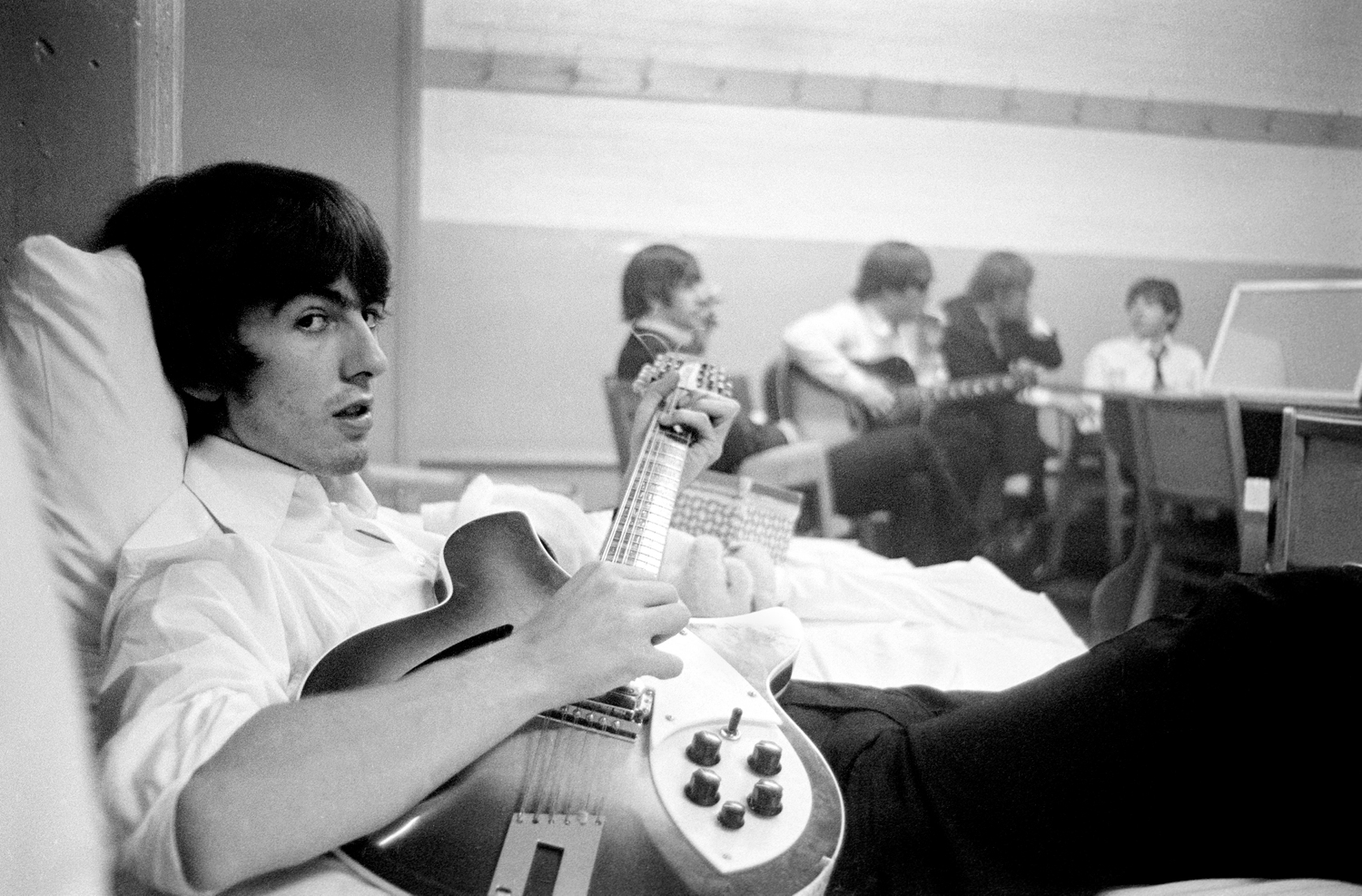
His songwriting offered listeners a window into his spiritual journey, exploring themes of love, faith, and self-discovery. Tracks like ‘Within You Without You,’ ‘Here Comes the Sun,’ and ‘Something’ reveal a depth of emotion and contemplation that contrasted beautifully with the more immediate pop appeal of Lennon and McCartney’s compositions.
Away from the guitar, Harrison was a committed humanitarian. He helped organize the groundbreaking 1971 Concert for Bangladesh, one of the first major charity concerts, raising awareness and funds for refugees and setting a precedent for artists using their influence for social good. He was also a passionate advocate for environmental conservation and world peace, consistently integrating these values into his life and music.
Harrison’s interests extended beyond music. A keen motorsport fan, he famously helped finance the first Monty Python movie simply because he wanted to see it.
As a solo artist, Harrison achieved historic success, becoming the first former Beatle to reach Number One with both a single (‘My Sweet Lord’) and an album (All Things Must Pass), proving his talent and appeal were not confined to the group.
Although quiet in demeanor, George Harrison was anything but a passenger in The Beatles’ journey. His musical intuition, spiritual depth, and humanitarian efforts left an indelible mark, not only on the band but on generations of musicians and fans who continue to be inspired by his work. Harrison’s legacy is a reminder that subtlety, depth, and integrity can shape history as much as charisma and fame.
Ringo Starr: The Heartbeat
I feel like people often forget just how pivotal Ringo Starr was to The Beatles. Beyond being a talented drummer, he was the glue that held the band together. Musically, socially, and emotionally. It’s a drummer’s job to maintain rhythm, but Ringo went further: he created a steady, intuitive heartbeat that allowed Lennon, McCartney, and Harrison to experiment and shine.
Often overshadowed by his more high-profile bandmates, Ringo’s contributions are sometimes underappreciated. He may not have shared Lennon or McCartney’s songwriting prowess, but his drumming provided the foundation for some of the most iconic songs in music history. His rhythms were inventive yet unobtrusive, perfectly complementing the songs while enhancing their emotional and musical impact.
Ringo’s style is instantly recognisable. The crisp, driving beat on ‘Ticket to Ride,’ the hypnotic groove on ‘Come Together,’ and the playful swing of ‘Rain’ are just a few examples of his genius. He was an unsung hero behind the drum kit, content to let the songwriting spotlight shine on the others while quietly shaping the sound of an entire era.
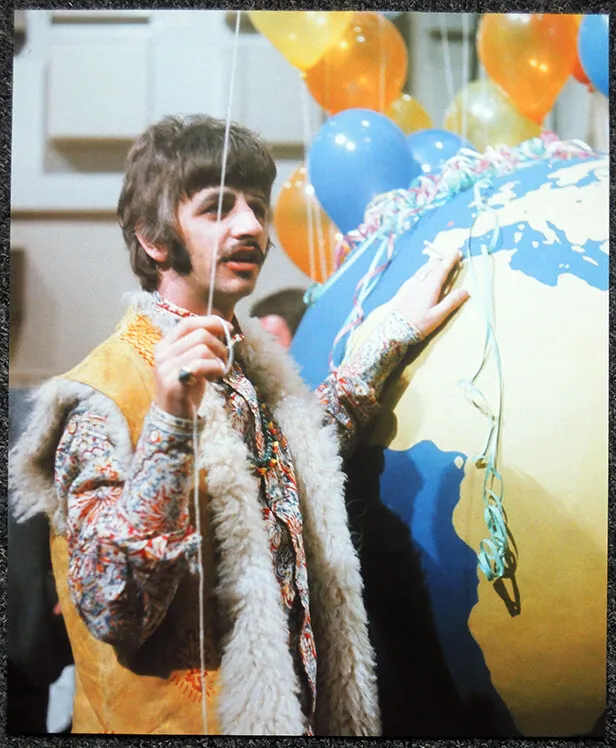
Ringo also brought his voice to several Beatles songs, lending charm and whimsy. Tracks like ‘Octopus’s Garden’ and ‘Yellow Submarine’ are perfectly suited to his warm, approachable vocals and sense of humor, creating some of the most memorable and joyful moments in The Beatles’ catalogue. His singing often captured a sense of childhood innocence, adventure, and pure fun.
Beyond his musicianship, Ringo’s personality was a key part of The Beatles’ dynamic. His quick wit, infectious charm, and affable nature helped maintain harmony within the band and endeared him to fans and fellow musicians alike. He could diffuse tension with humor, lighten heavy moments, and bring a grounded presence that kept the group connected through years of unprecedented fame and pressure.
Ringo Starr may not always receive the spotlight, but his contributions, both musically and personally were vital to The Beatles’ success. He was, and remains, the perfect heartbeat for a band that changed the world.
Global Phenomenon:
The Beatles are still, even today, a global phenomenon: a band that continues to generate attention, inspire new generations, and influence music, culture, and society.
It’s a story with countless twists and turns. Four lads from Liverpool took on the world and, in many ways, took it over. Their story is one of love, hope, tragedy, grief, unity, and inspiration. Soundtracked by 213 songs and 12 albums that continue to resonate across decades.
The Beatles’ journey saw them rise from humble working-class beginnings in Liverpool to performing, The Cavern, before conquering stadiums in America, where the crowds were so overwhelming they often couldn’t hear themselves think. Along the way, they transformed the very concept of what popular music could be, creating concept albums with mysterious characters, innovative production, and thematic cohesion that would set the standard for generations of artists to come.
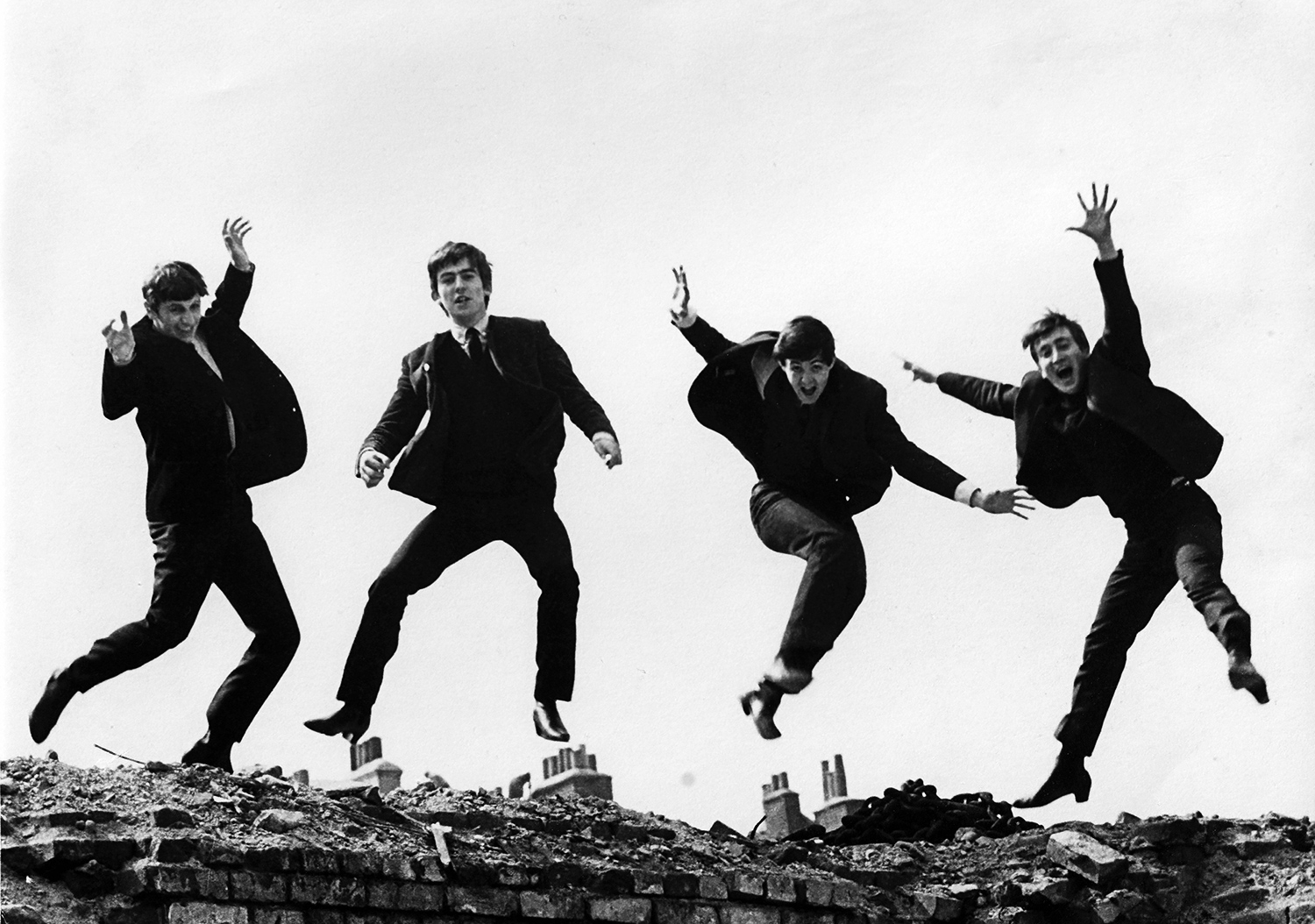
Their story was also marked by personal loss. At the height of their fame, they faced the deaths of pivotal figures: manager Brian Epstein and, later, their long-time producer George Martin. These losses could have derailed any band, yet The Beatles’ music and creativity endured, proving the strength of their collective genius.
It’s a story that is anything but boring. Time has only added depth and fascination, as new generations discover their music for the first time. With the release of the final Beatles song, 'Now & Then', in 2023, the story may be over, but the band’s legacy continues to grow.
Somewhere in the world, someone will hear these songs for the first time. They might be swept away by the infectious pop joy of ‘She Loves You,’ moved by the haunting complexity of ‘A Day in the Life,’ enchanted by the tender beauty of ‘Something,’ or transported on a psychedelic journey with ‘Tomorrow Never Knows.’ Each song carries its own magic, timeless yet endlessly fresh.
The Beatles were pioneers of modern music. Their influence is woven into every corner of popular culture, from rock and pop to film, fashion, and social thought. Without them, the landscape of modern music and perhaps even global culture would be entirely different.
Those four lads from Liverpool: John, Paul, George, and Ringo really did something extraordinary. They didn’t just make music; they created a cultural touchstone, a shared experience across generations. Their songs continue to unite, inspire, and captivate, proving that true genius never fades.
I'll leave you with some quotes from some musicians:
Noel Gallagher (Oasis):
"Their influence is absolute. I don't know a single guy playing the guitar or writing songs that wouldn't cite the Beatles as an influence."
Paul Weller (The Jam, The Style Council):
"The Beatles changed the world. They certainly changed my world, and many, many other individuals as well."
Ozzy Osbourne (Black Sabbath)
“When I heard the Beatles. I knew what I wanted to do.”
Jimmy Page, (Led Zeppelin)
“There’s no outdoing The Beatles.”
Brian Wilson (The Beach Boys)
“The Beatles were in a different stratosphere, a different planet to the rest of us. All I know is when I heard ‘Love Me Do’ on the radio, I remember walking down the street and knowing my life was going to be completely different now the Beatles were in it.”
Brian May (Queen)
"The minute I saw The Beatles on The Ed Sullivan Show — and it’s true of thousands of guys — there was the way out. There was the way to do it. You get your friends and you’re a self-contained unit. And you make the music. And it looked like so much fun. It was something I identified with. I had never been hugely into sports. … I had been a big fan of Elvis. But I really saw in The Beatles that here’s something I could do. I knew I could do it. It wasn’t long before there were groups springing up in garages all over the place. ”
Thank you for reading x